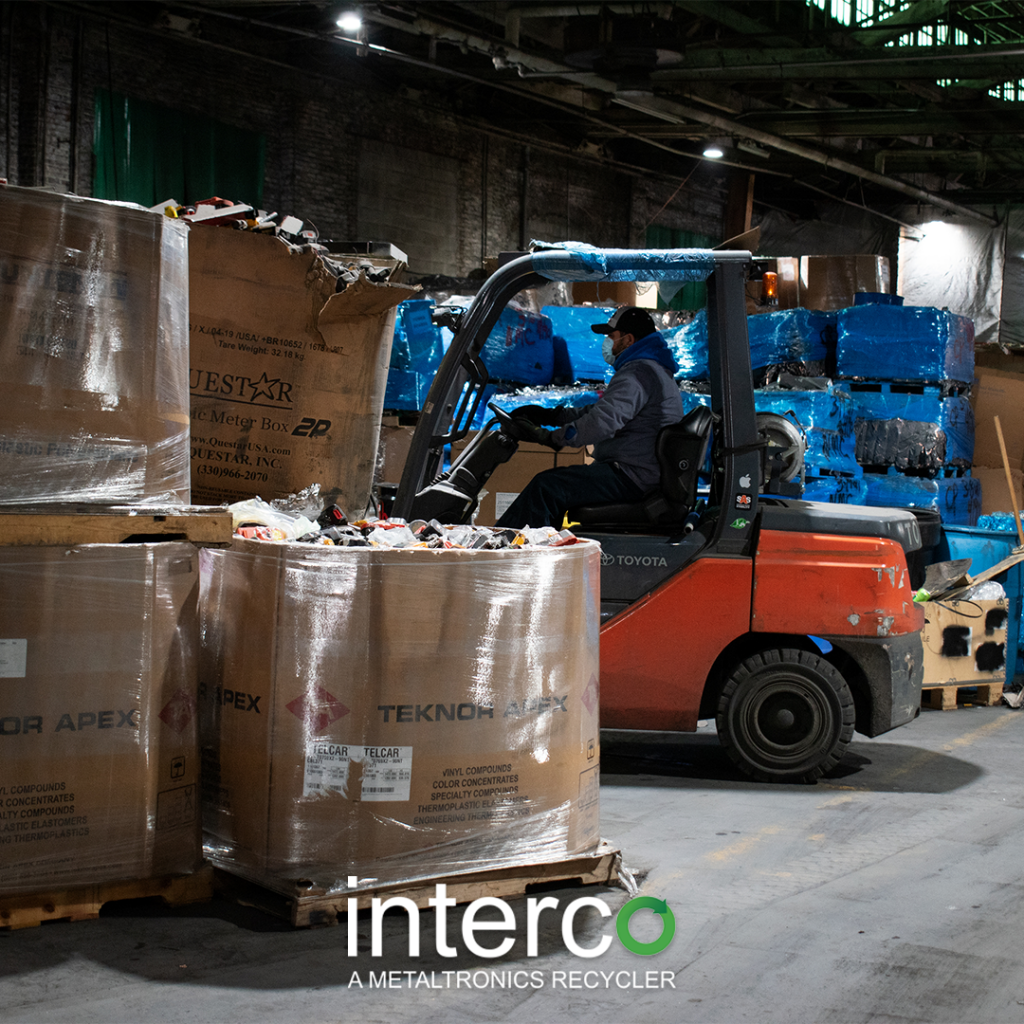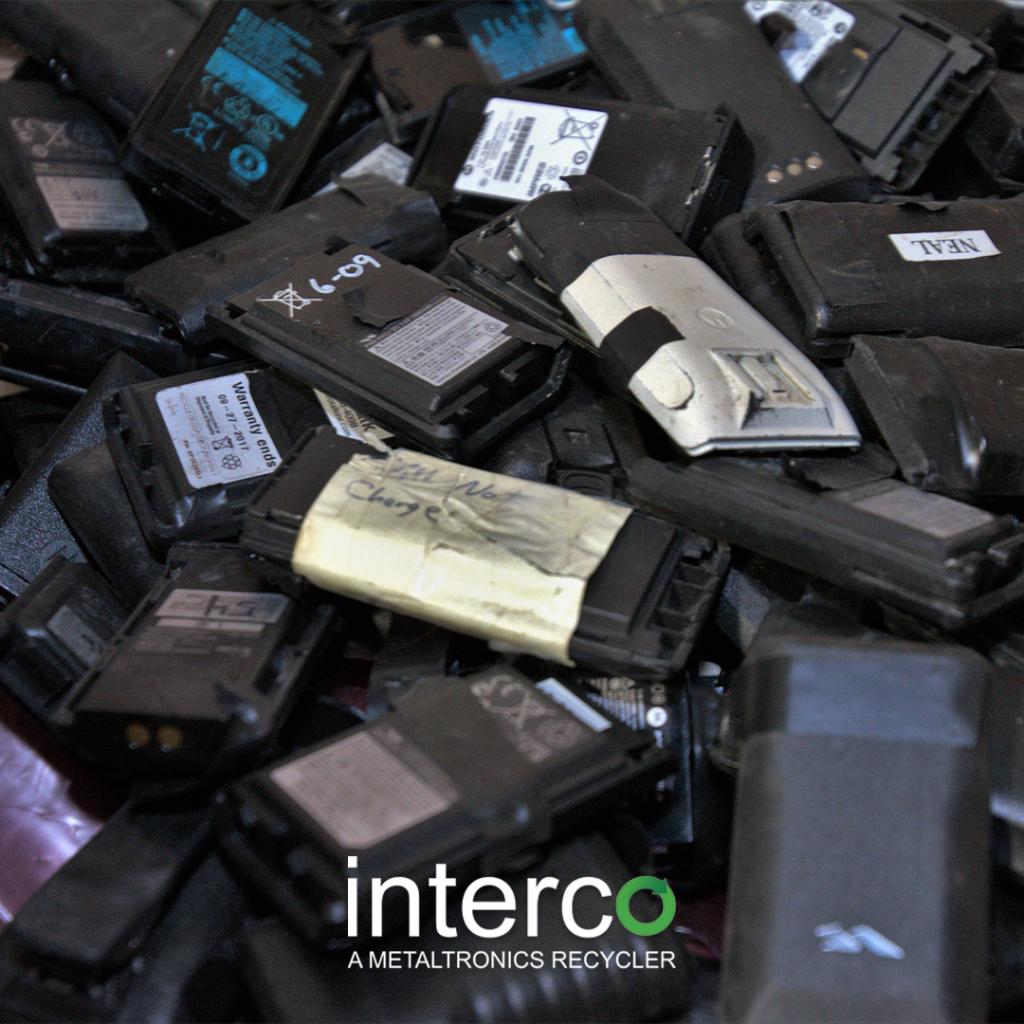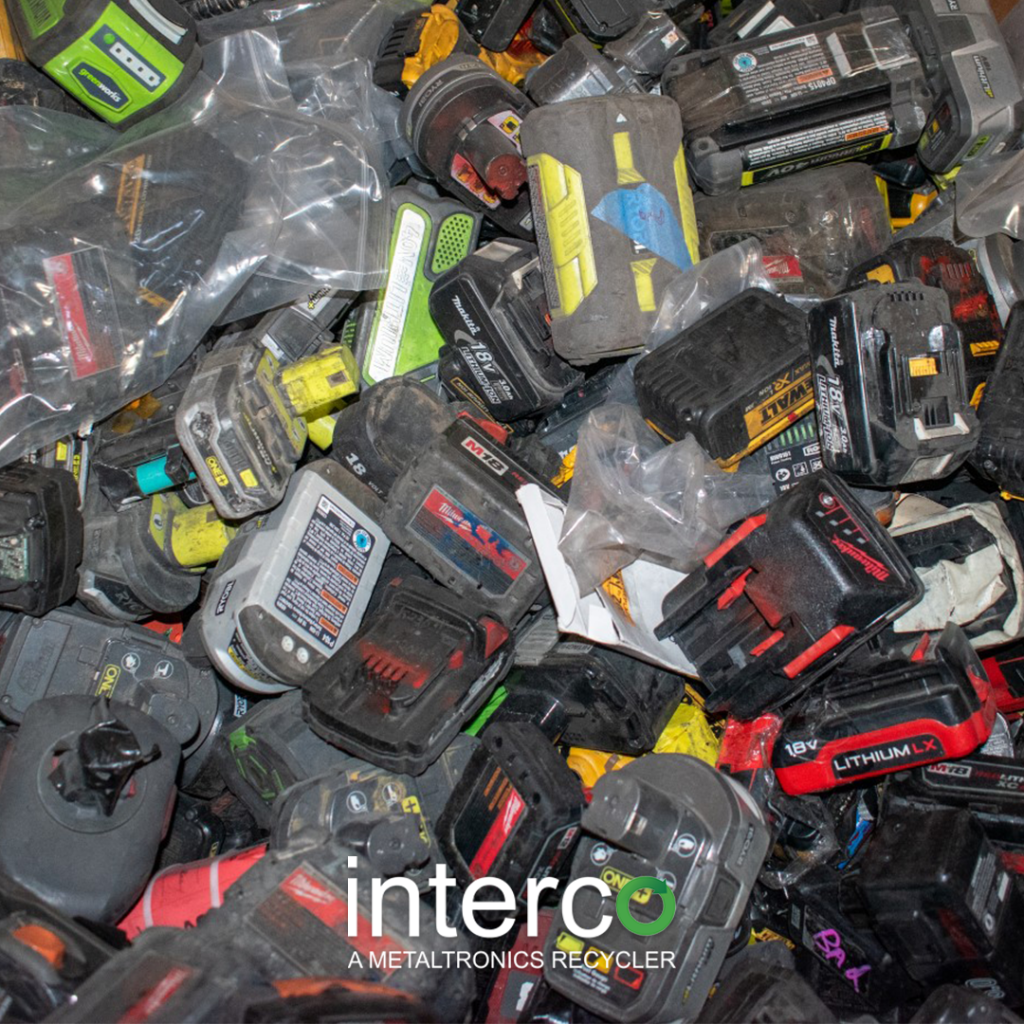Earn While Recycling Lithium-Ion Batteries

Earn While Recycling Lithium-Ion Batteries
Rapid growth in the market for electric vehicles and lithium-ion powered devices presents a serious waste-management challenge for recyclers at end-of-life. Spent batteries grant an opportunity as manufacturers require access to valuable metals and materials.
Recycling lithium-ion batteries from electric vehicles and other devices provide a valuable secondary source of materials.
Inside every smartphone and tablet lies a dense brick with a complex history. Recycling lithium-ion batteries transforms exhausted batteries into a valuable resource.
Recycling techniques recover 95% to 98% of a battery’s nickel, cobalt, aluminum, graphite, and more than 80% of its lithium. Thus, much of those materials are sold back to companies to make new Tesla batteries and other materials.
Battery recycling is a delicate process. If current trends for processing these spent batteries hold, most of those batteries may end up in landfills. Consequently, the process to recycle lithium-ion batteries is obvious.

Why Recycling Lithium-Ion Batteries is Good for Business
Lithium-ion batteries are costly to manufacture because of the high material cost and complex preparation processes. As a result, obsolete, or spent lithium-ion batteries can have a positive impact on the economy and environment when transported to a recycling center.
Battery users often replace their spent batteries after aging, overuse, or overcharging occurs. Once this occurs, the process to sell scrap lithium-ion batteries becomes noticeable.
In addition, scrap lithium-ion batteries have a potential recycling value that can turn waste into profit.
The market for recycling lithium-ion batteries alone could be worth $18 billion annually by 2030, Statista estimates, up from $1.5 billion in 2019.
Batteries are expensive and have a relatively short life span. As discarded batteries grow by the tonnage, collectors have looked to recycling centers to earn from the valuable metals and materials stored within the battery.
Numerous valuable metals and minerals create a lithium-ion battery. These metals, like other batteries, include:
- Nickel
- Cobalt
- Copper
Lithium-ion batteries contain these rich minerals and valuable metals that allow for extended manufacturing of batteries if recycled. Therefore, these valuable metals and other materials can be recovered, processed, and reused.
As lithium-ion battery recycling becomes more profitable, it will create results that lower costs for batteries and the vehicles they are put into. It will also help smooth out price fluctuations due to supply chain issues. Furthermore, it is worth acknowledging the rules on handling lithium-ion batteries.

Recycling Lithium-Ion Batteries
Recycling centers buy or sell scrap lithium-ion batteries with the goal of extracting the valuable metals from the battery. As a result, before retrieving the metals, recyclers follow a recycling process.
- Prior to the recycling process, companies need to deactivate the batteries.
- Lithium-ion batteries are put in a specialized room that is oxygen-free.
- Hydrometallurgy is the process of extracting metals from ores.
- Next, the leaching process refers to the process of using aqueous solutions to extract metal from other metal-bearing materials.
- The battery components are separated into three different items. Therefore, these items may include cobalt, steel, aluminum, copper, plastic.
- As a result, these valuable metals are retrieved, and companies sell them.
Consequently, batteries that are not transported to a recycling center end up in a landfill. As a result, Interco performs the recycling process for lithium-ion batteries carefully on a facility comprised of five buildings — approximately 400,000 square feet total — on more than 35 acres.
Interco, as an ISO 9001 Quality Management System certified company, continues an international-accepted uniform quality system, supplies the highest levels of customer service, and manages its material in the highest regard.
All material will be recycled by approved ISO 14001 Environmental Management and ISO 45001 Occupational Health and Safety best practices. As a result, Interco confirms the exact weights and records upon receipt, and we issue a written certificate of recycling.
Earn While Recycling Lithium-Ion Batteries with Interco
Interco offers your business the opportunity to buy and sell scrap lithium-ion batteries for recycling purposes. Finally, recycling enables the recovery of rich metals and reduces the harmful effects on the environment that improper disposal causes. Additionally, the team at Interco accepts, processes, trades, and recycles an array of nonferrous metals. Interco recycles batteries of all shapes, sizes, and chemistry. Thus, the team at Interco continues to lead the way in terms of innovative industrial recycling solutions. Consequently, to discover more about how to recycle lithium-ion batteries, click here.